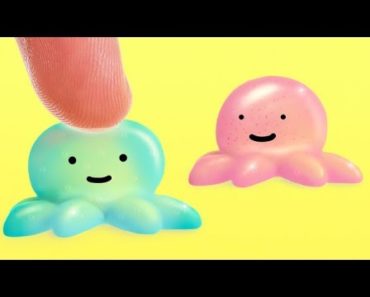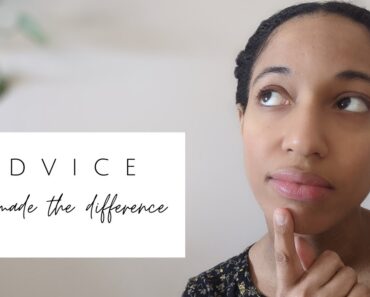We all know that dental care is important for overall health, but it comes with a steep price tag that many Canadians can’t afford. Roughly one-third of Canadians don’t have dental insurance, and many avoid going to the dentist at all because of that.
To help ensure equitable dental access to Canadians, the Canadian government has proposed the Canada Dental Benefit for eligible families earning less than $90,000 per year. If passed, this would be great news for the estimated 500,000 Canadian children who would be eligible for free dental care under this program.
The Canada Dental Benefit is specifically meant to provide up-front, tax-free payments to cover dental care for Canadian children whose families do not have access to private dental benefits. It will start with children under age 12 in 2022, and eventually expand to children 12-18 years old.
The government has not yet released details about exactly how the plan will be run, which dental services will be covered or how it will fit within existing subsidized provincial dental programs. But here’s what we do know so far.
Which kids are eligible for the Canada Dental Benefit?
The new Canada Dental Benefit is intended for families earning less than $90,000 per year. The amount of dental coverage per child is based on your family’s exact income level. Your family is eligible for:
- $650 per child per year if the family’s adjusted income is under $70,000
- $390 per child per year if the family’s adjusted income is between $70,000 and $79,999
- $260 per child per year if the family’s adjusted income is between $80,000 and $89,999
Canadians with private employer-sponsored dental benefits for their children are not eligible for this benefit. As to how this new federal plan will fit with existing provincial or territorial free dental plans for children, those details are still being ironed out.
What’s covered under the Canada Dental Benefit?
According to the proposed bill, the plan is set to cover “services that a dentist, denturist or dental hygienist is lawfully entitled to provide, including oral surgery and diagnostic, preventative, restorative, endodontic, periodontal, prosthodontic and orthodontic services.”
Zelda Burt, head of communications for the Canadian Dental Association (CDA) says that costs for care may vary from province to province. “While the treatment recommended—and the associated cost—will vary from patient to patient, the amount of the dental benefit should be enough in most parts of the country to cover basic dental services,” says Burt.
A child’s dental cleaning with X-rays usually costs about $200-250, so a single cleaning would easily be covered at any of the plan levels, says Toronto-based dental hygienist Heather Rich. “I think this program is a good start to help children have access to dental care,” says Rich. “It can help catch problems at early stages and prevent more serious issues later on. Helping detect decay early is the biggest benefit.”
But what if a dental cleaning uncovers a more serious problem, such as a cavity? Or what if a child requires orthodontic braces, which can cost upwards of $6,000? Burt explains that the Canadian Dental Benefit appears to have some provisions in the event a child needs more than $650 worth of dental services in a single eligibility period. “The government has also indicated that children who are eligible for other publicly funded dental programs can also access the Canadian Dental Benefit to cover out-of-pocket expenses not covered by these programs.”
Rich adds that orthodontics are often chosen for aesthetics, not medical need. “Orthodontics are nice to be able to do, but in many cases it’s cosmetic,” says Rich. “In most cases, it’s not something that has to be done.”
When will the Canada Dental Benefit start?
The target start date for the Canada Dental Benefit is December 1, 2022, pending approval by Parliament. To date, it’s not yet approved. It’s currently at the second reading phase, and the last session of debate was held on October 7, 2022. It needs to pass a third reading for the bill to become law.
The Conservative government is raising some red flags; the concern is that hefty price tag of covering dental care will only add to inflation. It’s estimated that the program will cost $938 million dollars.
While the Conservatives are pushing to quash the bill entirely, it’s unlikely that will happen since the Liberal and NDP parties will both vote to pass the bill. If the bill passes into law, the program would retroactively cover dental care expenses from October 1, 2022.
How to enroll in the Canada Dental Benefit
Details about how and when to apply for the program have not yet been released, but it’s expected that families with eligible children will apply for the dental program through the Canada Revenue Agency (CRA), which will use your adjusted income to determine eligibility and the amount of benefit you will receive.
In the meantime, you can get ready to apply by visiting this Canada.ca website. The questionnaire on this page will help prepare you for the eventual steps you’ll need to take to apply for the program. It asks you questions about your income taxes, your access to Canada Child Benefits, and if you have a CRA My Account (online account). Think of it like a pre-screening to make sure you have all of your documents in order for when it’s time to apply.
Can my child keep going to their current dentist?
The government has said the benefit can be used towards any dental service provided by any dentist. “Canadians would be able to apply for and receive the benefit ahead of their child’s dental appointment, where they would pay the dentist directly,” says Burt.
Still, while any dentist can participate in the program, some may choose not to. In feedback collected from CDA members, some dentists say the plan needs to ensure appropriate remuneration on par with provincial/territorial fee guides in order for them to opt in to be a program provider. Historically, government-funded programs have lagged behind current fee guides significantly.
Ultimately, a dentist’s participation in the program is their choice and it’s not mandatory. If they don’t think their dental services will be fairly reimbursed, they may not opt-in. If your child’s dentist doesn’t opt-in and you need government coverage, you may need to choose a different dentist who is part of the program.
When you apply for the dental benefit through CRA, you will need to share the name of your dentist as part of the application process. You apply to get the benefit ahead of your child’s dental appointment, so if your dentist isn’t part of the program, you will know in advance and can choose a different dentist.
More details will be provided as the program rolls out, but so far it seems like a welcome program that will be beneficial to many Canadian children.

































